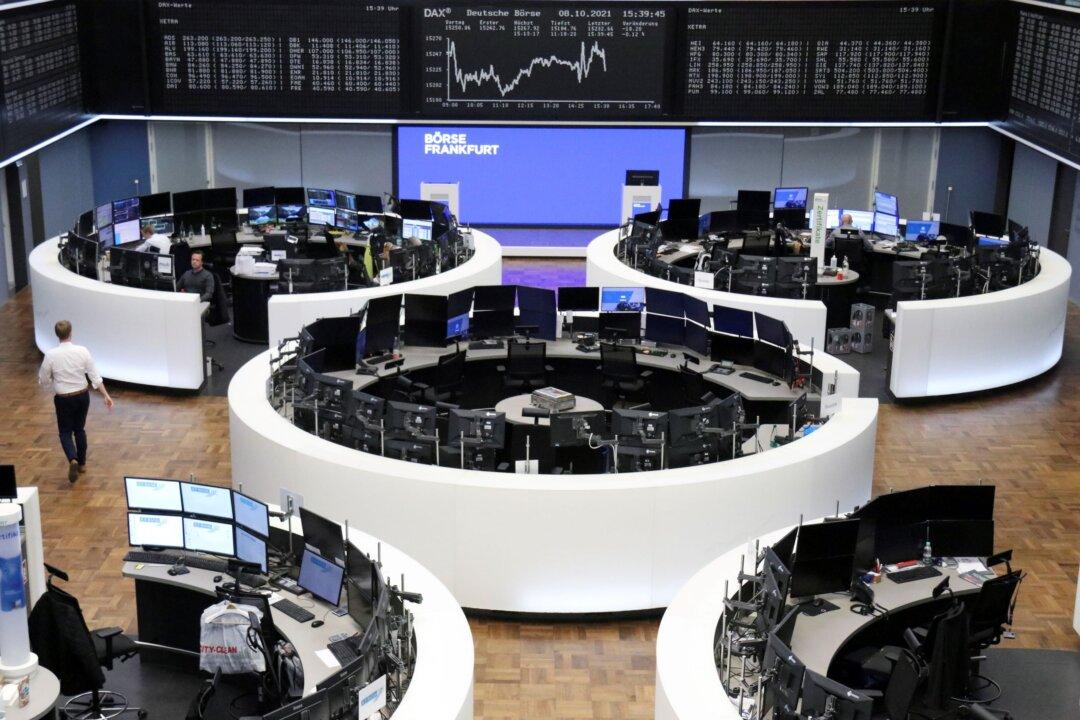European shares fell on Monday after weaker-than-expected growth data from China hit luxury stocks, while a relentless surge in commodity prices fuelled worries about inflation spiralling out of control.
The pan-European STOXX 600 index fell 0.5 percent after an upbeat start to the quarterly earnings season drove its strongest weekly performance since March on Friday.





